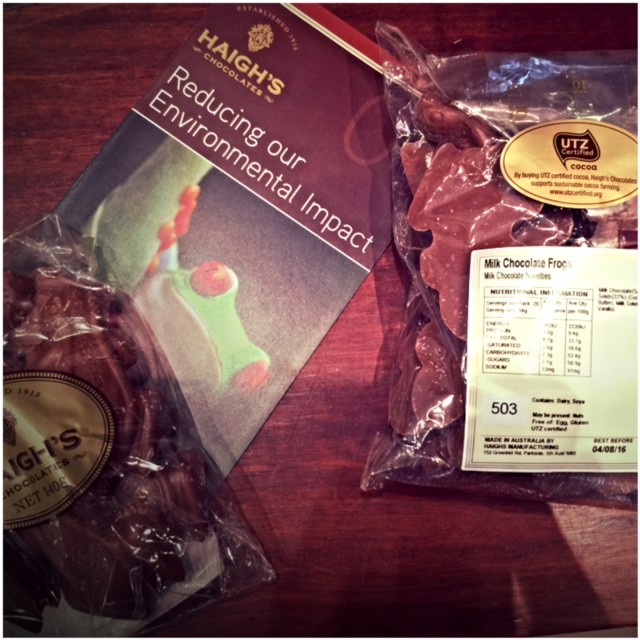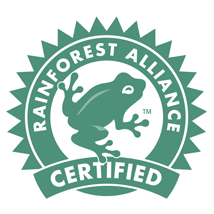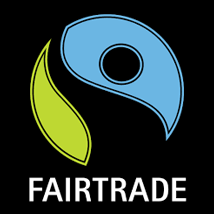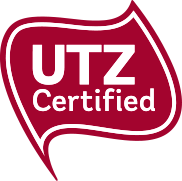It has been well reported over the last 15 years that child labour issues are a grave concern in the cocoa supply chain.
Last week we wrote a detailed report on how this came to be an issue, what has been done to date and what the ethical options are for chocolate lovers.This week we want to share an interview with Peter Millard, supply chain manager for Australian chocolate brand Haighs, and their journey to becoming 85% ethically certified in their sourcing of cocoa – a massive achievement in the face of a very challenging and complex global issue.
Q: How did ethical sourcing come to be a topic of concern to Haighs?
A: When I first came here and joined the chocolate industry in 2006, there was a bit of noise around child labour for a couple of years. It was hard for us at the time and we may have started out as a bit defensive, we are a small company working with the supplier options available to us to produced a premium product in a complex and long supply chain, and we can’t have a big impact to bring about change.
I found it personally challenging, considering myself an ethical person I had to ask how I want to respond personally.
Q: What was the tipping point to take action on this issue?
A: Over time we kept running into it until it couldn’t be avoided anymore. We looked at Fairtrade certification but it wasn’t an option for us because the requirements for certification are so onerous. We looked at other certification options through UTZ and the Rainforest Alliance and initially tried to engage both.
Our product is now 85% is now UTZ certified. It isn’t as strict as Fairtrade in that it allows a small element of flexibility. The UTZ model is excellent as if allows you to achieve various levels of certification not only at 100%. That means if there we are using a blend of 4 types of beans and only 3 are certified then they will provide a 75% certification label. We currently do use one type of bean sourced from a country where there there are no certification options, and we have an action plan with them to become certified. This model allows progress not perfection. It takes it from being an insurmountable problem, to something that that we can change and continue working towards.
Q: How do you manage the sourcing activity?
A: We source the product from a UTZ certified agent who is connected to potential suppliers who all must members of UTZ. The source and the distribution channels is fully traceable through an online portal where the transactions are visible all the way from the farms, the trader enters it into the system and it is tracked all the way through to when it is documented that the cocoa has been consumed in production. It is called the good inside portal its an UTZ product also used in tracing certified sources of coffee and tea as well. It’s very good because I can see from my end right back to the farm where the product originates.
Q: And what about auditing the sources?
A: We audit annually using SGS, they audit quality and food safety as well as humanitarian concerns. The audit goes to UTZ who then issue a licence which enables us to use the certified product label.
Q: How do you promote that your product is made with ethically sourced cocoa beans?
A: We use store signage in the store as well as the label on the packaging. We are a hand made product, so in store we use the product itself to sell the product, so it’s not so easy to slap a label on it. Because we are a premium brand people assume we are ethical, so important that we are communicating that we are meeting those customer expectations. The retail workers also love to be able to tell customers where the cocoa comes from, it just strengthens their love and pride of the product.
Q: What’s your view on progress of the industry in general?
There is momentum around this particular issue in Australia. Three years ago there was a big movement where there was a shift from talking to taking action. We are now seeing that there are more and more UTZ certified sources available to us.
Coles and woolworths also want to move towards certification, which drives the industry to make change.
We have had support from a lot of not for profit organisations, and Stop the Traffik in particularly has been wonderful. They were less about the problem and more about promoting clear actions that can be taken to bring about change. That means rather than defending our position and what we can’t do, we can then focus on what we can do. None of us ever said that we want to have slaves in our supply chain. We just found ourselves to be a part of a very complex problem.








